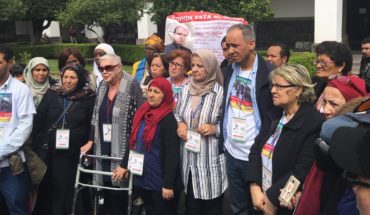Hong Kong–Hong Kong Executive President Carrie Lam steadily rose to the bureaucratic ranks to capture the top position in the former British colony, relying on absolute intelligence, ambition, social media and a cunning deference to authority. However, the terrain has changed considerably since he began his career in public administration in the 1980s. On Saturday, he appeared to be fighting for his political life as he tried to explain his decision to push for unpopular legislation that would facilitate the extradition of suspects to communist-ruled mainland China, which took control of the territory in a 1997 installment.
One of the key reasons for Lam’s vulnerability is that she was not directly elected by the people of the territory, but was elected to office in 2017 by the vote of a 1,194-member committee dominated by pro-Beijing elites, despite being much less popular than her pr incipal rival. She is now caught among an audience that never really supported her, and leaders in Beijing who want her to approve unpopular measures that erode Western-style economic, social and cultural freedoms that Beijing promised to respect 50 years later. took control of Britain.Lam, 62, has a reputation for being an efficient and pragmatic administrator. But she was unpopular with Hong Kongers even before she took office because she was seen as a representative of Beijing who was out of touch with ordinary people. He said Saturday that he was setting aside the extradition bill to prevent further social unrest following a protest march that attracted hundreds of thousands of people on June 9 and violent clashes on Wednesday when police used gas tear, rubber bullets and other tactics, which infuriated the public. . Lam’s insistence that he had the full backing of China’s central government to make his decision probably sounded deaf because of his skepticism about the motives of Communist leaders, especially after a deadly crackdown on student-led pro-democracy demonstrations in Beijing’s Tiananmen Square three decades ago. .” They understand, trust my judgment and support me,” Lam told reporters, while saying that legislation was still needed. Hours later, Bonny Leung, a leader with a pro-democracy alliance, accused Lam of “ignorance and arrogance.” She and other activists urged Hong Kongers to come forward en masse for a March on Sunday to demand full withdrawal from extradition bill, an apology for the police’s aggressive tactics, and Lam’s resignation as chief executive. Few anticipated that Lam would be embroiled in such friction when he replaced his predecessor Leung Chun-ying, a highly polarizing former cop who resigned as CHIEF Executive Officer in 2017, citing familiar reasons. Lam could eventually, after an interval to save the face, also end up aside, analysts said. That would allow Beijing to decide on a successor that the leadership considers competent and politically reliable.” She may not be fired right away, but her chances of a second term no longer exist and you can find a reason to let her go without losing her face because she is now hated by everyone in Hong Kong and her administration has become quite ungovernable.” Willy Lam, a veteran political observer, said. Carrie Lam is Hong Kong’s first female leader and fourth since Britain ended its colonial rule in 1997. While the Chinese government in Beijing has condemned foreign criticism of protests over the extradition bill for meddling in the country’s internal affairs, they have largely remained. Controversy in Hong Kong aside, I’d rather let Lam handle the issue or even turn it into a scapegoat, according to some analysts. China’s ambassador to Britain told the BBC that the push to speed up the extradition bill was Lam’s idea. She grew up in the Wanchai district, in the city centre, the fourth of five children. She attended a Catholic girls’ school, the University of Hong Kong and later the University of Cambridge.She is married to a mathematician and has two children. They’re British citizens, but Lam isn’t. Much of the unhappiness with Lam and her administration predates her appointment as executive director. Protests in 2014 over rules imposed by Beijing to elect members of the electoral committee to help select the chief executive who paralyzed parts of the city for weeks. The protests, called the Umbrella Movement, highlighted Hong Kong’s aspirations for a bigger democracy, rather than less. Upon taking office, Lam pledged to focus on issues such as housing, education and health care. By pushing for the extradition bill, she sparked public frustrations over the growing control of Beijing.Al talking to reporters on Saturday, Lam insisted she only wants what’s good for Hong Kong.” We haven’t done a good enough job to convince the people of Hong Kong,” he said. “Give us another chance.”





